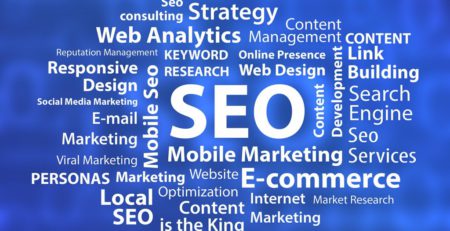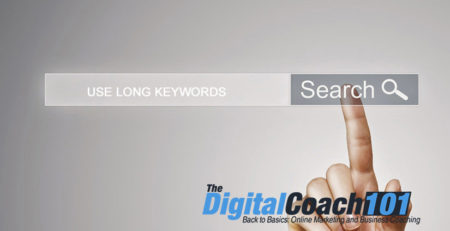SEO: Small Business, Meet Your BFF
Starting your own business is not fun. Which is something your friends didn’t mention when they were encouraging you, during a long and prosecco-fuelled night at the pub, to take the plunge and just do it. What is that Coldplay says? “Nobody said it was easy. Nobody said it would be so hard.” But it is hard. It. Is. So. HARD! And there will no doubt have been a hundred times, during those heart-palpitating, sleepless-in-the-middle-of-the-night moments, when you just wanted to give up on the whole thing. But you didn’t! You toughed it out and saw it through. Your small business is now a reality, and you’re ready to totally wow your customers. Provided, of course, you can get them through the door. How do you do that, by the way? Easy – SEO. Small business or big, Search Engine Optimisation is at the very foundation of your success.
I know, I know. You’ve got more than enough on your plate at the moment. The festive season is upon us, and you want to make sure you have enough stock to cover the anticipated rush of customers. You’ve got family coming for the holidays, and you’re not sure how you’re going to juggle running a new business with keeping crotchety Aunt Alice entertained when it’s freezing outside. And the kids are on holiday, so the fridge only ever seems to stay full for five minutes.
We get that you’re busy, tired and stressed. But you’ve put so much of your life and soul into getting your business off the ground, that this is not the time to start cutting corners. Yes, you’ve got a lot going on, but no, you can’t afford to not think about SEO. Small business or not, you need an effective digital marketing campaign. And this means … you need SEO.
SEO, Small Business Loves You!
Or at least, it should! A basic level of SEO is absolutely non-negotiable for any company with a digital presence, but it’s particularly important for a startup. Approximately one-third of all people searching online click the first search result on Google. And the top three results receive a total of 61% of clicks. That’s a lot of potential business coming your way! But only if you rank highly in Google’s search results pages. How do you do this? Effective SEO.
Small business owners are usually, and understandably, worried about finances, but effective SEO doesn’t have to cost a lot. You can focus on basic SEO first – keyword placement, alt tags, meta tags and header tags, for example – ramping up to a fully-fledged strategy when time and budget allow.
It’s important, though, to have some SEO right from the start, forming the base on which your website can grow. It also ensures that your marketing activity is consistent across all channels and that you have clear search targets in mind from the very start. It’s not really something you can just “bolt on” to your promotional package at a later date.
Starting small does mean you’ll probably develop fewer natural links, have a lower Domain Authority, and take a longer time to rank on search engines. But this is not actually a problem because you’ll get there in time. As this brilliant article puts it, SEO is a crockpot, not a microwave!
Important Elements Of SEO
So many startups here in the UK spend precious funds developing and building a website, but then are completely non-plussed when it fails to deliver thousands of customers. But when we examine these websites a little closer, we almost always notice one key issue:
Since the website first went live, the business has not added one single bit of content to it. Not a blog or an article or a link to a social media post…..nothing! Suddenly the absence of customers is a lot more understandable! Regularly adding content to your site is a great way to keep search engines interested. And when search engines are interested, they think other people will be too, so they boost your site a little higher up the rankings.
Other important SEO elements include:
Keyword Research
Proper keyword research is one of the cornerstones of great SEO. Small business owners should first create a list of all the “ideal” keywords you want to target. Unless you have a particularly unusual product or service, the chances are good that many of these keywords are really popular search words. This makes it harder for you, especially as a start-up, to reach the top of search results. There are numerous tools you can use to help with keyword research, which should hopefully help you find new words to target. Long tail keywords also offer a better chance of showing up higher in search results.
Content Audit
A content audit is a fantastic way to find out how each and every piece of content on your site is performing, and what you can do to improve it. Even if you only have a basic website, there will be some content on it! A content audit usually takes the form of a spreadsheet and includes elements such as:
- Page title
- Word count
- Page URL
- Meta description
If you’re now in a panic as you realise you haven’t written meta descriptions for your blogs or other content, it’s ok! You can add these gradually as you begin organising your SEO strategy.
Error Correction
Errors on your website are not only extremely annoying for your customers, they also damage your site’s SEO. Small business, like big business, need to avoid this at all costs. Here are some of the more common errors and how to fix them:
Broken Images
These are quite common – especially if you share images from an external source. Check your pages regularly – eliminating broken links will improve the first impression of your site.
Duplicate Content
Duplicate content is not only a problem for pages within your own site, but also with guest posts. If the post you’ve submitted to another site closely resembles content on your own site, this gets flagged as duplicate content. This offends Google’s sensibilities and you also risk being penalised in the rankings.
404 Page
We all know how excruciatingly frustrating it is to be met with the dreaded “Page Not Found” message. These 404 errors can affect user engagement as well as your rankings. So, if you’ve recently changed any URLs, or migrated any content, you should definitely check for 404s! If there are any, you can actually turn them into an asset instead of a liability by making them quirky or fun. There are some great examples in this article, as well as some great advice generally on creating the perfect 404 page!
Should SEO Be DIY?
This is a question that many cash-strapped start-ups ask. In this day and age, people argue, you can learn everything you need to know from the Internet. Read a couple of articles, watch a few YouTube videos, and hey presto, instant genius. This is probably true if you want to learn how to look after the Siamese Fighting Fish that your friend has asked you to babysit this Christmas while she heads off to the warmer climes of southern Spain. Or if you need to know how to make chicken a la king.
But here’s a point to ponder:
How confident would you feel if you needed a tooth extracted and the dentist told you not to worry, he’s seen a couple of How To clips online? Or if your Range Rover needs a service and the mechanic admits to having read about it on the website?
Here’s the thing:
If SEO were easy, everyone would be doing it. But they’re not, and here’s why: proper, effective, worthwhile SEO is pretty tricky. It’s also massively time-consuming. Google is forever changing and adapting its search tactics, and keeping up with these algorithms is a full-time job. You need more than just a few hours over the weekend to learn everything there is to know about search engine optimisation. If you want the best results, go to the best in the industry.
Speaking of which….
Do You Want To Be A Facebook Rock Star?
Social Media is a great starting point for your start-up’s marketing and SEO efforts. Facebook in particular, is a goldmine of opportunity you simply can’t afford to ignore. With over two billion users, it’s the world’s largest social media platform. YouTube comes in a rather distant second, with half a billion fewer users.
Facebook is still growing by around 20 million users a month, so it makes perfect sense to leverage this amazing platform to kickstart your start-up!
To help you, The Digital Coach is proud to bring you the most comprehensive Facebook training programme ever devised. We teach you the secrets behind why Facebook helps your website traffic and conversions, and loads more cool stuff, including:
- How to Get Free Facebook Traffic
- Get Noticed on Facebook for Maximum Exposure
- The Hidden Dangers of Facebook Advertising
- Common Facebook Ad Misconceptions
When you’re done, we guarantee you’ll be a true Facebook ninja! In fact, you’ll be even better than that! You’ll be a fully-fledged, super certified and headbanging Facebook Rockstar!














